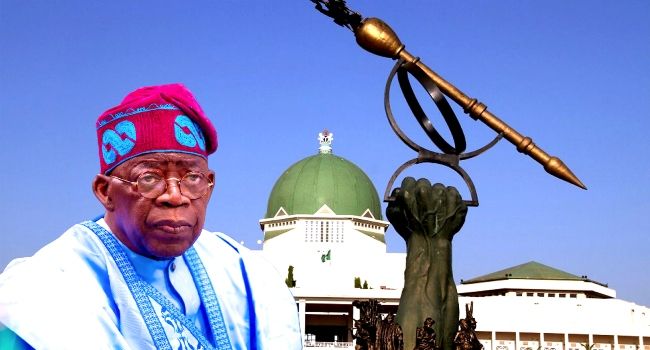Barely three months to the end of the 2025 fiscal year, the 2025 budget’s N54.99 trillion with capital component of N23.96 trillion, is yet to be implemented. President Bola Tinubu signed the 2025 budget of N54.99 trillion into law on February 28, 2025.
The budget, which nearly doubled the 2024 budget, includes a total expenditure of N54.99 trillion, statutory transfers of N3.65 trillion, and recurrent (non-debt) expenditure of N13.64 trillion.
It reflects anticipated additional revenue and aims to stimulate economic growth and development, with allocations for capital expenditure, debt servicing and statutory transfers.
However, while the recurrent expenditure (salaries, overhead are being implemented), the capital budget component is at zero level in terms of implementation.
The Federal Government is still struggling with the implementation of the 2024 capital budget, with scanty releases. A top official in one of the of MDAs put releases thus far at between 30 and 50 per cent depending on the status of the agencies.
However, the government insists it has recorded nearly 80 per cent capital releases to MDAs with regards to the 2024 Appropriation Act.
In an interview with Sunday Telegraph, an economist and financial analyst, Prof. Ken Ife, lamented the poor implementation of the 2024 budget and the zero implementation of the 2025 budget.
Prof. Ife expressed disappointment that the budget failed from the onset because some of its basic parameters such as the benchmark price of oil, were faulty and unrealistic.
“I’m so sad about the element of our budget preparation, where from the outset, I said you cannot have a benchmark of $75 per barrel when the three-year projection by the American Energy Institute is that the thing will remain between $65 and $68 and all other predictions.
“So, what you are doing in effect is that you are actually crowding out capital projects because the normal convention is that the benchmark should be well below the preferred market prices, so that there is an accretion to excess crude accounts.
From excess crude accounts, there is an accretion to the reserves, the foreign reserves, which now gives us the capacity to fight and maintain currency stability. But that is the opposite.
“Now, what you have is you create a bogus budget, fund everything, have a massive deficit, and then at the end of the day, your priority is, one, debt service, because if you don’t, the rating agencies will come down on you like a ton of bricks.
Two, salaries: you don’t want workers to go on strike. Pension, then you now come to defence, critical, and then you now pay the rest of the revenue expenditure,” he said.
Prof. Ife said with the manner the budget was currently structured, the capital budget will suffer. “By the end of the fiscal year, you would have achieved 100 per cent of recurrent expenditures but you don’t spend on capital.
Perhaps, 10 per cent of capital, then you are forced to roll it over to March of the following year, and from March to June, from June to December.
“So who is playing who? It’s just the defective methodology of carrying out the budget. It’s just not correct. You shouldn’t be doing this,” he said. Lead Director, Centre for Social Justice( CSJ), Eze Onyekpere, said the scenario has serious implications on the Nigerian economy.
Onyekpere, a lawyer and public finance management expert, said a situation in which the President Bola Tinubu administration was yet to complete the implementation of the 2024 budget; has not even started the implementation of the 2025 budget while it is preparing to submit the 2026 Appropriation Bill to the National Assembly, violates Section 318 of the Constitution in its definition of the period of the Nigerian Financial Year when the budget should be implemented.
“It is therefore unconstitutional. It also violates the Financial Year Act, the entire gamut of the Fiscal Responsibility Act and Finance (Control and management) Act. What is happening is a clear case of illegality founded on an impunity response and attitude towards laws and policies, disregard of the welfare of majority of Nigerians, who can only derive benefits from the implementation of the developmental capital portions of the budget.
It is about lack of capacity on the part of the extant managers of the fiscal space in the Ministries of Finance and Budget and Planning. It is about lack of transparency and accountability. Indeed, it represents the foundation of all that is wrong with fiscal policy implementation.
“The implication is a stagnating economy, where economic growth is still at the level of population growth, unemployment is soaring, inflation still very high despite the methodological manipulations, majority of the population is still poor,” he said.
On what the National Assembly should do about this situation, Onyekpere argued that the Legislature had abdicated their responsibility in terms of oversight of the activities of the Executive to ensure compliance with the laws of the country.
“The National Assembly should have nudged the executive through oversight to perform the duty of implementing the budget since the President states that due finances expected from revenue projections have been realised.
The legislators, rather abandoned their duties while singing and standing on the mandate of the President Bola Ahmed Tinubu.
“They considered the exercise of their lawful oversight and holding to account duties as anti-party activity since most of them are from the ruling party.
They exchanged the constitutional mandate and their oath of office with timidity and the Kabiyesi obeisance to personal loyalty rather than fidelity to the Constitution and the ultimate sovereigns being the people of Nigeria from whom government through the Constitution derives all its power and authority,” Onyekpere said.
It will be recalled that in August this year, the OAGF conveyed stakeholders’ engagement in Abuja to review progress and challenges in implementing the extended 2024 capital budget and the 2025 capital budget under the Bottom-Up Cash Planning Policy.















